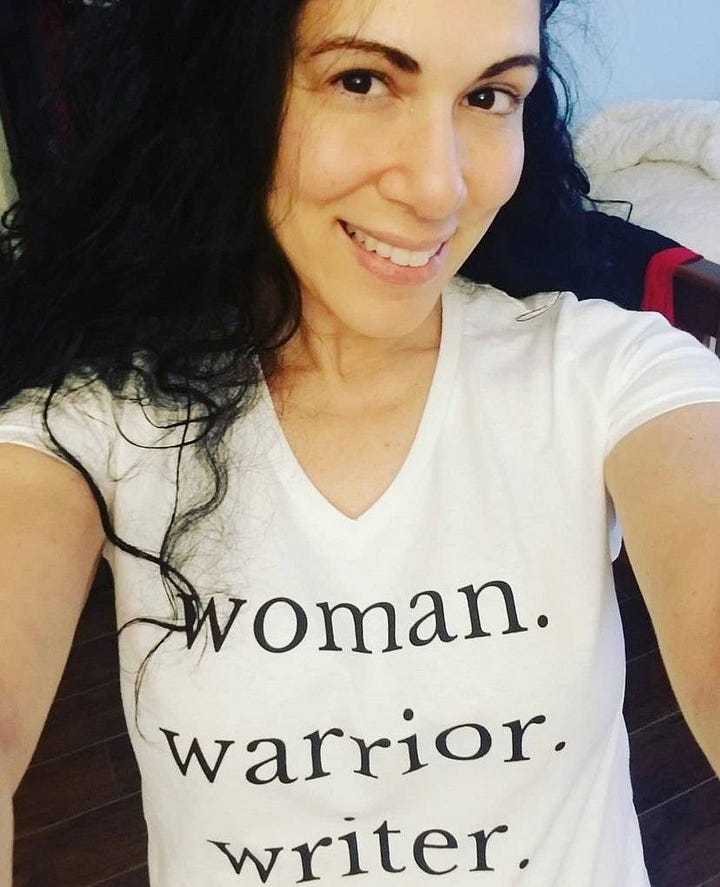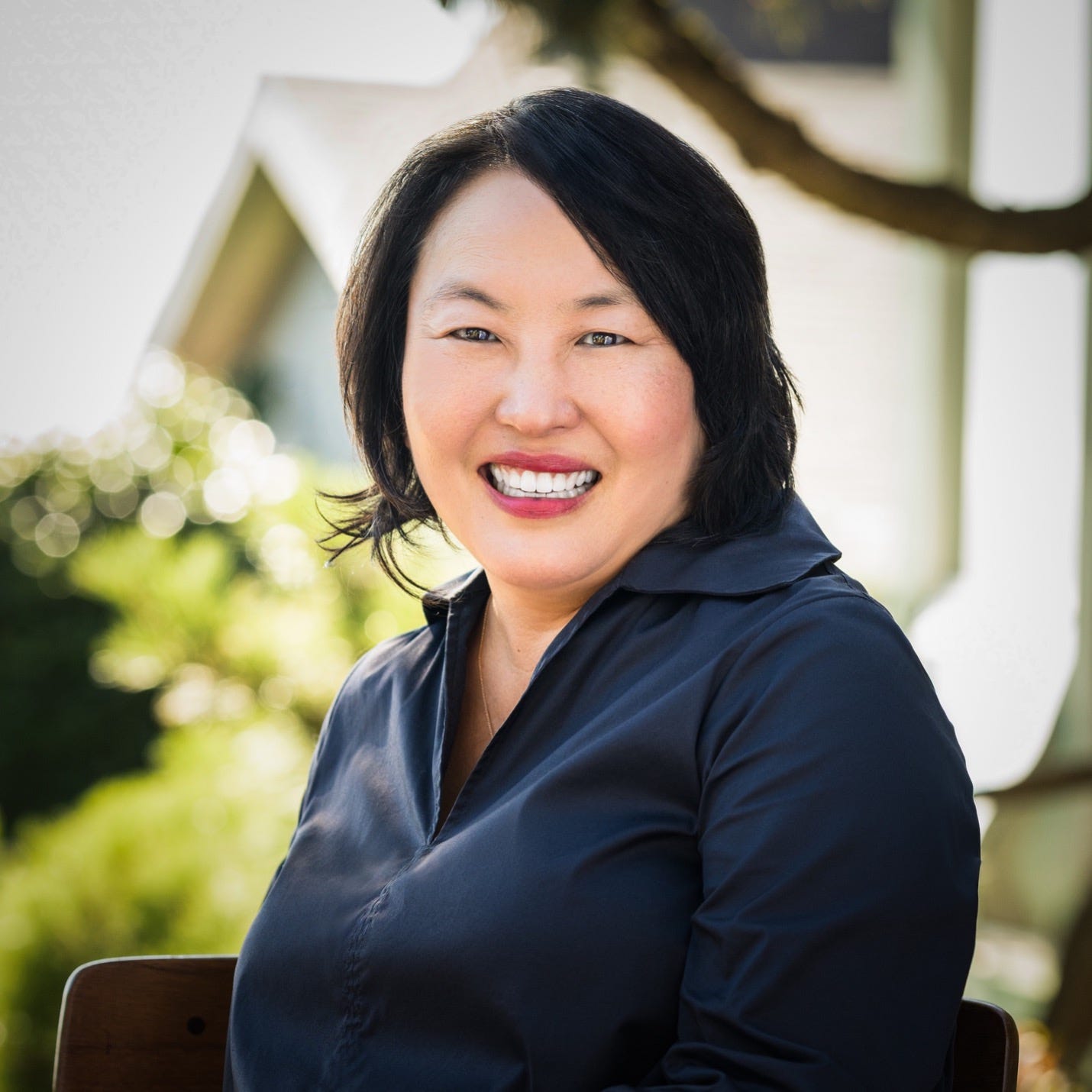Woman. Warrior. Writer. Margaret Juhae Lee
How did you come to author your life?
In a circuitous way. I have always loved to write. I started writing stories in elementary school and was a devoted pen pal to a friend who moved to Norway when I was in 4th grade. I wrote for my junior high newsletter, but I was pre-med in college because that’s what my immigrant parents wanted. I switched to art history and worked at an art museum for years—my favorite part of the job was writing explanatory labels. I made the switch to journalism in my 30s after realizing the “making rich people happy” part of my chosen career did not align with my values. The Nation was a much better fit. It was around this time that my father made the discovery that my grandfather, Lee Chul Ha, was a student revolutionary in colonial Korea, which is the subject of my book. My book took 25 years to be published, which is a whole other story.
Margaret Juhae Lee is the author of Starry Field: A Memoir of Lost History (Melville House). She was the assistant literary editor at The Nation magazine and has published articles in The Nation, Newsday, Elle, ARTnews, Writer’s Digestand The Rumpus. Learn more @www.margaretjuhaelee.com
Classes
Intersectionality: Manuscript Workshop (10 weeks) Jan. 7-Mar. 11 Tues 1-3PM an MFA level workshop of dedicated writers working on specific manuscript projects. One-on-one meetings. Limited enrollment. Writing submission required. Instructor permission only. Previously enrolled students $1080; new students $1199. Contact writer@drstephaniehan.com
Women’s Creative Writing Workshop (4 weeks) Jan 17-. 7-9AM Sat (HST) a mixed level cross-genre generative writing workshop with a focus on voice, craft, creative process, and community. This includes a 1-on-1 about your writing (use or lose) after the last class. $399
BREAK: Write Your Divorce Story Workshop is a two-hour confidential workshop for women at any stage of the divorce process. Learn the basic Divorce Story Structure – and write your divorce story for your personal/legal file. Confidential. Helpful. Honest. Insight. Write your truth to power. Divorce is a feminist issue. $199
NOV. 11/19 Tues or 11/30 Sat 9-11AM (HST); DEC. 12/17 Tues or 12/28 Sat 9-11AM( HST)
BREAK: Your Divorce Story Newsletter coming this month! Subscribe to learn strategies to ride the wave of divorce. Real talk: truth bombs, reflections, testimonies, facts, history, money, and what you need to survive and thrive during and after your divorce. Questions? Contact writer@drstephaniehan.com
BREAK: How to Write Your Divorce Story Guide coming this month! A downloadable guide available for purchase. Learn how to write your divorce story. Sign up for the newsletter to get the announcement.
Disclaimer: consult a lawyer prior to inserting it in your legal file. See Youtube to understand why it’s important to write your story!
News
Honolulu Noir by Akashic Books with WWW contributors Mindy Eun Soo Pennybacker, Christy Passion, and me—is out this weekend. HNL folk please come to the reading at Da Shop on Sunday from 3-5PM!
Ishle Yi Park WWW will have her poem “Rosaries” in the Barahm Press forthcoming protection spell online folio!
Anne Liu Kellor WWW edits BOTH/AND an anthology of multiracial voices on identity, belonging, ancestry, and modern mixed-race experience. Out on Beacon Press!
Sang Hea Kil WWW hit the Guardian. Scroll down to last part of article.
Defend Academic Freedom! Reinstate Dr. Sang Hea Kil!
Many years ago when I was an MFA student in Arizona, I struggled in multiple arenas. The vast majority of my cohort were young white students, whose interest in writing I would best describe as a brief stop on their long journey that centered a life that in truth, did not center writing and story. I was beset by financial aid issues, denied opportunities, and marginalized. It was due to the efforts of a few remembered faculty members that I got through the program a better writer. It was due to the generosity of the Asian American Faculty Association of UA who awarded me money that I was able to finish my degree. And, most importantly, it was due to the camaraderie, knowledge and intellectual insight of the women who constituted the UA Graduate Women of Color organization that I moved forward as a writer and thinker. Their bravery made me brave. Their intellect propelled and inspired me, and in so many ways, led to my own Ph.D. many years later.
One of the key figures in this organization was Sang Hea Kil--at the time a Ph.D. student and someone I would describe as brilliant, fierce, compassionate, and talented. She showed me what an Asian American woman activist could do and was both pragmatic and forward thinking. She was willing to both challenge paradigms and state what worked in a current status quo situation.
As years passed, and life happened, we went in and out of each other's lives as I moved overseas. We reconnected when I came back to the U.S.. When I was getting a divorce and flat broke, I went to a hiring conference in San Francisco and she bolstered my spirits and stuck $200 in my pocket as I left. When I moved to Maui and life seemed impossibly chaotic, she flew in to reassure me that I was on the right path. When I went through the Bay area again, it was her humor and honesty that I took with me as I made my way back from the embers of a life that had burned to the ground.
Sang Hea knows how to lead. She also knows that student voices matter--because when people exercise their right to speak, they can learn from each other and build a more inclusive society. She is being unfairly and harshly punished for having the courage to support the efforts of students. Her dedication to scholarship and teaching is unparalleled. Her willingness to stand by what is right is something very very few people possess. As a Korean American woman, I will say, I have never ever met a Korean American woman like Sang Hea--and she remains a model to me of how a woman might live, function, and change society, one story at a time, one student at a time, step by step. She is a true Woman. Warrior. Writer.
Please sign this petition to reinstate her – we need faculty like Sang Hea Kil.
Words & Wisdom
Nessa Ko, a UK / NY lawyer had some compelling statements when I informally asked her about defamation a few months ago. I’ve condensed this for readability.
“If someone is claiming that you have defamed them by something you wrote or said, they are claiming that you have committed libel (written form) or slander (a statement). (This is a generalization to say the least to avoid writing a thesis here). If they are upset at something you wrote, perhaps they are claiming both types of defamation against you. For example, if you wrote a book they claim is about them (libel) and you also discuss the book (slander). While defamation laws differ across jurisdictions, generally the claimant needs to show that the statement (in whatever form) was untrue but you presented it as a fact, that it was published /communicated to a 3rd person (e.g., someone who isn't you or the person claiming you defamed them), and that this actions has or will likely cause serious reputational harm which commonly is demonstrated by serious financial loss.
This is a high bar to meet. Let's say you wrote about your experiences in a break-up. Was what you said about the break-up factually untrue or does the person feeling aggrieved feel aggrieved at a difference of opinion? If your article was about your perceptions, experience, feelings, etc as a result of you being on your half of the break-up, how that can be factually untrue? You are the only person who knows how you felt about your side of what happened. And even if it was factually untrue (for example, if you wrote that that person pressured you to eat meat when you are vegetarian), that statement needs to be communicated publicly in a way where it actually causes harm to that person. In other words, people believe the untrue statement and that this has caused them to suffer harm. I am not encouraging people to write untrue things because it's difficult to quantify the extent of harm it caused. I am emphasizing that writing passionately and descriptively about what your perceptions are about your experiences may be inconvenient to some, but to say that it's defamatory is a big leap. Again, this is general, but embarrassment or anger alone do not count. They need to show that they lost out on reputation which is commonly linked to financial losses.
If someone is claiming that you defamed them, hopefully they have considered the above sufficiently to explain what they believe they can prove was actually untrue, who they believe has read / listened to your statement, and how that has led them to suffer losses. This is the threshold for conducting a defamation claim, and so there is a reason why very few claims succeed. You need significant financial capability to investigate all these required items to even complete the argument to start the conversation that someone has defamed you. And then you need money to sustain the trial (and win) to get the remedy you want whether it be damages in the form of your profit from the defamation, or an injunction to prevent you from writing what you want, and so forth. The point is, what you write might be awkward for the subject person to read. But let's take a moment to reflect on whether it's really defamation before we get too caught up worrying if they can use those words to stop you from writing about your experiences."
Disclaimer: Note readers, you may want to further investigate this area, but you need to remember that whatever you write on the page is your truth alone. Far too many women are even fearful of putting their feelings down on the page. Silence may be survival. But you have to ask what you are surviving for and why.
Get your Woman. Warrior. Writer. merch. gear to support women who write!


Aloha,
Stephanie





